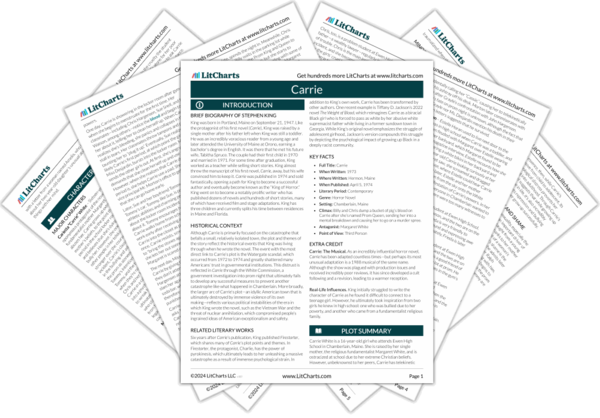This incident is notable in that it is the first time Carrie has ever overtly used the threat of her telekinesis as a way of threatening Margaret, and also the first time Carrie has ever sworn at her mother. Carrie’s newfound rebellion is typical of a teenager, but it goes beyond that, serving as a self-defense mechanism against the severe abuse she’s facing. Most importantly, her realization that Margaret
fears her telekinesis gives her leverage; as her threat to “bring the stones again” shows, Carrie has the ability to retaliate in a very real and violent way.
